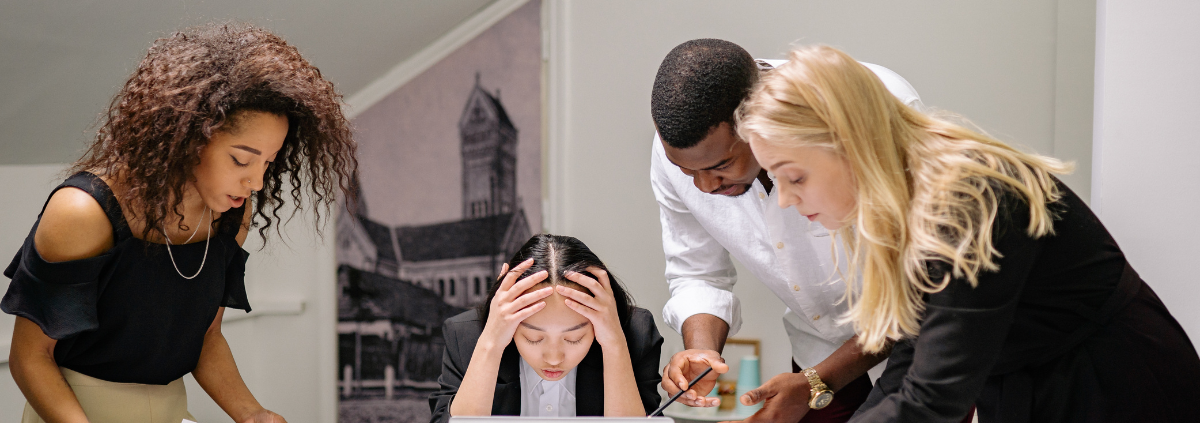Managing Anxiety in the Digital Age: Strategies for Staying Grounded
In a world where our lives are increasingly intertwined with digital technology, managing anxiety can feel like a relentless challenge. The constant barrage of notifications, social media feeds, and the pressure to stay digitally connected can exacerbate feelings of anxiety and stress. But in this very digital age, there are effective strategies that can help us stay grounded and maintain our mental well-being. This article explores practical ways to manage anxiety in today’s tech-driven world and how to cultivate a healthier relationship with our digital devices.
Understanding Anxiety in the Digital Age
The digital age, with all its benefits, has also brought unique challenges. The endless stream of information, the pressure to be constantly available online, and the often unrealistic portrayal of life on social media can lead to heightened anxiety. This state of constant connectivity can make it difficult to disconnect, leading to a cycle of stress and worry.
The Impact of Social Media
Social media, while a tool for connection and information, can also be a significant source of stress and anxiety. Comparing ourselves to the seemingly perfect lives of others, experiencing cyberbullying, or simply spending too much time in these virtual environments can lead to feelings of inadequacy, loneliness, and anxiety.
Information Overload
The vast amount of information available at our fingertips can be overwhelming. The constant news cycle, particularly when focused on negative or distressing events, can significantly contribute to heightened anxiety and stress levels.
Strategies for Managing Anxiety in the Digital Age
Despite these challenges, there are several strategies that can help manage anxiety in the digital age:
- Digital Detox
Take regular breaks from digital devices. This doesn’t mean you need to go off-grid, but setting aside specific times when you’re not checking emails, social media, or news sites can provide much-needed mental space. Even a short digital detox can help reduce anxiety and improve focus.
- Mindful Use of Technology
Be intentional with your use of digital devices. Ask yourself whether your technology use is adding value to your life or contributing to your anxiety. Aim to use technology in a way that supports your well-being, rather than detracts from it.
- Set Boundaries
Establish clear boundaries for work and personal time, especially if you work remotely. Designate specific hours for checking emails and social media, and try to stick to these times. This can help prevent the feeling of needing to be constantly connected and available.
- Practice Mindfulness and Relaxation Techniques
Incorporate mindfulness and relaxation techniques into your daily routine. Practices like meditation, deep breathing, and yoga can help calm the mind and reduce anxiety. There are many digital tools and apps available that can guide you through these practices.
- Stay Active and Get Outside
Physical activity is a powerful antidote to anxiety. Regular exercise, whether it’s a walk in the park, a yoga session, or a workout at the gym, can help reduce stress hormones and trigger the release of endorphins, which are natural mood lifters.
- Create a Supportive Online Environment
Curate your social media feeds to include content that is positive, uplifting, and supportive. Unfollow or mute accounts that trigger negative emotions or anxiety.
- Seek Professional Help
If anxiety becomes overwhelming, it may be time to seek professional help. A mental health professional can provide guidance and support in developing effective coping strategies. Telepsychiatry, for instance, offers a convenient and accessible way to receive therapy and support from the comfort of your own home.
Coping Strategies for Specific Anxiety Triggers
- News Anxiety
If constant news updates are a source of stress, limit your news consumption to certain times of the day and choose reliable, unbiased news sources. Avoid sensationalist media, which can often exacerbate anxiety.
- Social Media Anxiety
If social media is a trigger, take regular breaks and be mindful of the time you spend on these platforms. Engage in activities that promote real-world connections and experiences.
- Work-Related Digital Stress
For work-related stress, try to establish a dedicated workspace and regular work hours. Communicate your availability to colleagues and superiors to manage expectations.
- Nurturing a Healthy Relationship with Technology
A healthy relationship with technology is about balance. It involves using technology as a tool to enhance your life, rather than letting it control your mood or behavior. It’s about being conscious of how much time you spend online and making an effort to engage in offline activities that you enjoy.
In the digital age, managing anxiety requires a conscious effort to use technology in a way that supports our mental health. By adopting these strategies, we can enjoy the benefits of the digital world while minimizing its impact on our anxiety levels.
If you’re struggling with anxiety and need support, our telepsychiatry practice in New Jersey is here to help. We offer a range of services to assist you in managing anxiety, including online therapy sessions that you can access from anywhere. You’re not alone in this journey; with the right tools and support, you can navigate the challenges of the digital age and maintain your mental well-being.
Remember: While technology can be a source of stress, it can also be a tool for healing and connection. Use it wisely, and don’t hesitate to reach out for professional support when needed. Your mental health is just as important as your physical health, and taking care of it is crucial for a balanced and fulfilling life.

